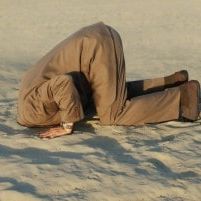This article has been updated since its original publication to reflect The Lancet’s retraction.
The Lancet, one of the oldest and most prestigious, reliable journals in the world, published a paper in May that showed Covid19-positive people who were treated with hydroxychloroquine were at higher risk of death than those who were not. The paper had dramatic effects — several countries around the world, and the World Health Organization, paused hydroxychloroquine trials that were supposed to assess the benefits of using the anti-malarial drug as a Covid19 treatment option, amid the safety concerns. Now, The Lancet has retracted the study, leaving health institutions around the world in the lurch.
Turns out, the patient data that was provided for the research that ultimately ended up in The Lancet was compiled by a small U.S. company called Surgisphere. An investigation by The Guardian reveals the company, which started as a medical education company and then suddenly became a data analytics company with access to more than 1,200 hospitals from around the world, is quite shady. The numbers that Surgisphere had provided — of hydroxychloroquine’s effect on heart disease and death in Covid19 patients — were overestimated and unreliable. Scientists also couldn’t figure out how, with simply a staff of 11, Surgisphere could have built a global database that tracked real-time patient data from hospitals in countries infamous for not having universal digitization of records, only in a matter of months. And in the midst of a life-threatening pandemic, did these hospitals — in Asian and African countries — even have time to send their data to a small analytics company in the United States?
To make matters worse, The Guardian found two of Surgisphere’s high-ranking employees — at least from what appeared on LinkedIn — were a full-time science-fiction author and artist, and an adult model, both of whom had no scientific credentials listed on their profiles. When scientists around the world gave voice to these concerns, the WHO, and several other institutions around the world, resumed their HCQ trials.
To simplify, the data was suspect, the company was suspect, and high-profile journals like The Lancet and The New England Journal of Medicine were left to stew in the humiliation of having to retract papers, leaving their own, seemingly rigorous, standards of scientific research questioned worldwide.
“This is a shocking example of research misconduct in the middle of a global health emergency,” The Lancet editor Richard Horton told The Guardian.
Related on The Swaddle:
The Quality of Scientific Research Has Deteriorated Under the Covid19 Pandemic. Ethicists Explain How to Fix It
In the world of hydroxychloroquine, this has happened before. Early on in the pandemic, HCQ emerged as a promising drug for Covid19, with medical institutions and countries rallying behind its use, recommending it as a treatment for patients and as prophylaxis for healthcare professionals. Soon after, doubts arose about its side-effects — studies showed increased heart disease risk in people who were treated with HCQ while infected with the coronavirus, which led to retractions of earlier papers that flaunted HCQ’s benefits.
At this point, retractions of HCQ studies don’t come as a surprise. But the fact that a highly revered publication such as The Lancet — one that has the power to influence global health policies — got roped into the shady politics surrounding HCQ doesn’t bode well for science, which is the only anchor that’s getting the global population through the Covid19 pandemic. Without scientists employing the most stringent of scientific scrutiny on Covid19 data, without scientific journals raising, maintaining, and implementing rigorous standards on scientists working on Covid19 solutions, and without the media thoroughly checking their facts before touting these scientific institutions’ claims, we’re quite doomed.
There’s a reason why we have a system of checks and balances. Let’s make sure we use it.




